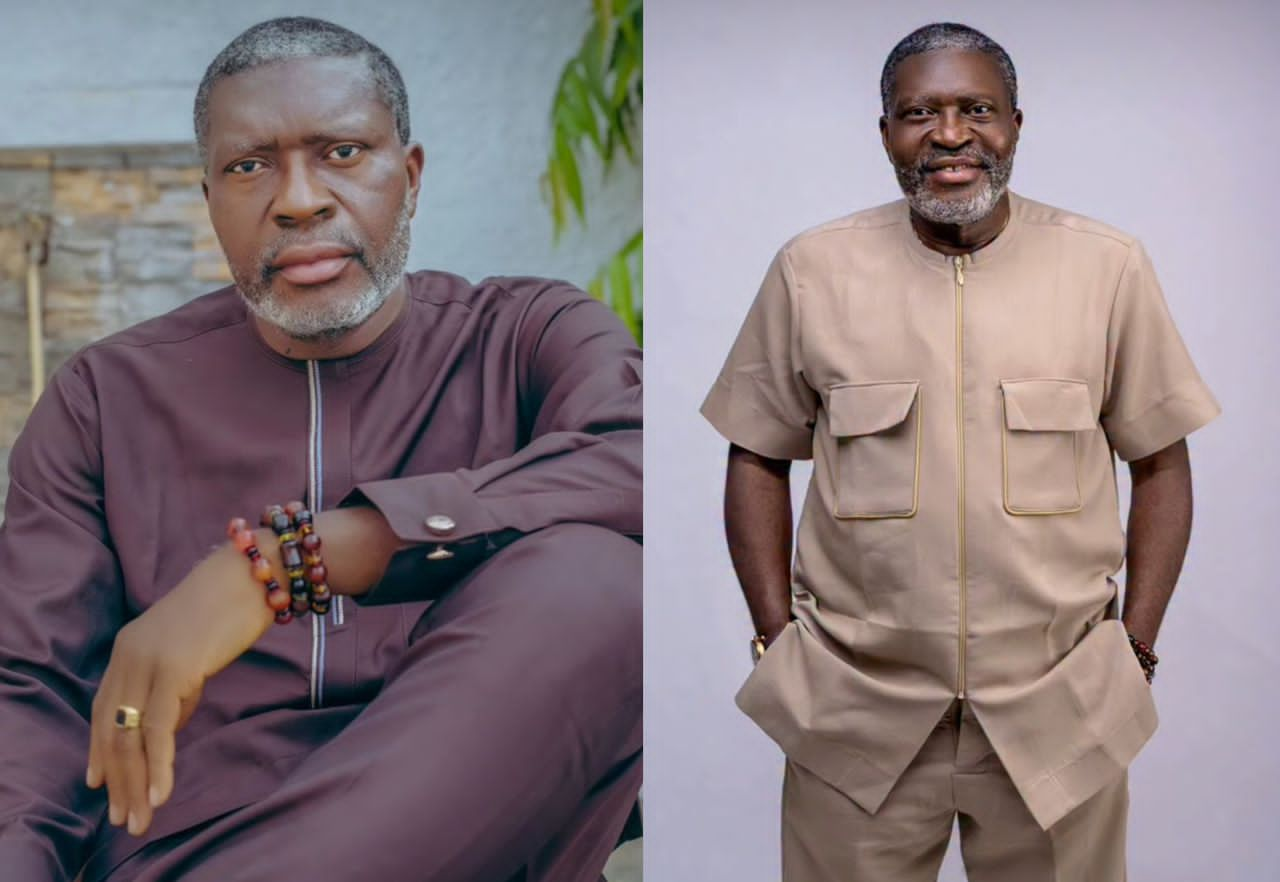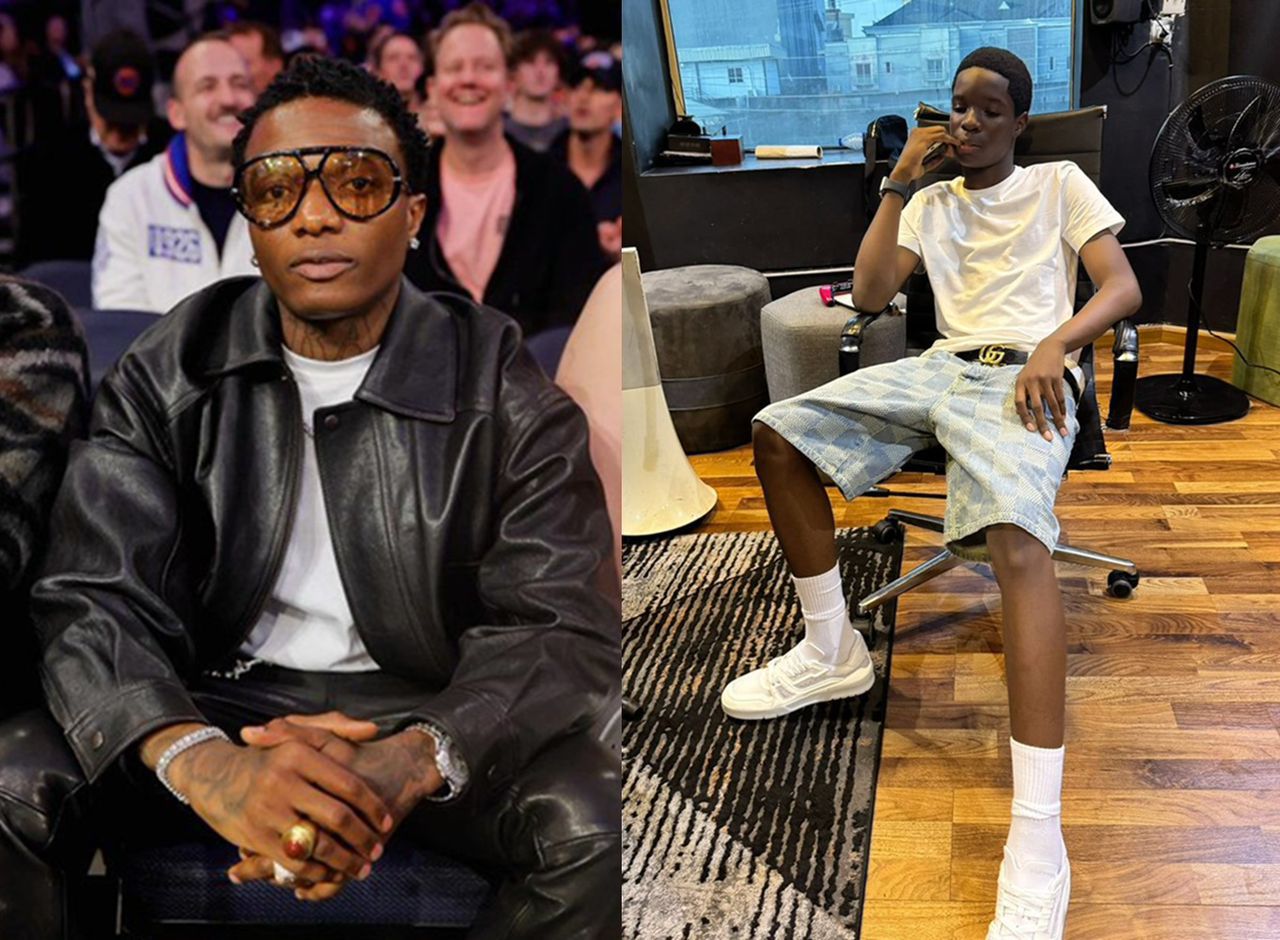
“Kanayo O. Kanayo Fires Shot at Nollywood’s Beauty Culture: Acting Is Not About Pretty Faces, It’s About Performance”

Nollywood legend, Kanayo O. Kanayo, has once again sparked conversations across the Nigerian film industry after delivering a blunt message to aspiring actors and content creators. In his recent remarks, the veteran actor, known for his decades of dominance in the movie industry and his no-nonsense personality, stressed that movie-making is not about facial beauty or outward appearance but about skill, performance, and the ability to captivate an audience. In words that quickly spread across social media, he said: “Movie-making is not about having a fine face, it’s about being a good actor and performer. Stop selling face on YouTube.” The statement, delivered with his usual authoritative tone, has struck a nerve at a time when Nollywood is seeing an influx of YouTube series, Instagram skits, and TikTok dramas that often prioritize physical appeal over professional acting prowess.
Kanayo O. Kanayo, who has remained one of the most respected figures in Nollywood since the 1990s, is not one to mince words when it comes to matters concerning the integrity of filmmaking. His warning comes amid a growing trend where upcoming actors believe that having “the look” is enough to make it in the industry. With the advent of social media and online content distribution, many young creators have built massive followings by showcasing their looks and charm in short clips, sometimes with little regard for story depth or character development. According to Kanayo, this mindset is dangerous for Nollywood’s growth because it waters down the seriousness and quality of acting, turning the industry into a beauty parade rather than a platform for true performers.
For decades, Nollywood has been built on the backs of actors who might not have conformed to conventional beauty standards but became legends because of their ability to embody roles, command emotions, and transport audiences into fictional realities. Kanayo himself is a prime example of that legacy. Rising to fame in the early days of home videos, he was never marketed as a “pretty boy” actor but as one who could convincingly portray complex roles—especially in films that explored themes of greed, crime, mysticism, and family conflict. His commanding presence and ability to transform into characters that audiences could either fear or sympathize with made him one of the most sought-after names in the industry.
By telling young actors to “stop selling face on YouTube,” Kanayo is essentially calling out a shift in Nollywood’s culture where entertainment value is increasingly tied to visuals rather than depth. Many skit makers and amateur YouTube producers rely heavily on polished appearances, flashy editing, and superficial dialogue, while the essence of good acting—timing, delivery, interpretation, and authenticity—is often ignored. His concern is that if this continues, Nollywood may end up producing a generation of actors who are known for their faces but lack the staying power to carry meaningful films. He reminded young people that audiences may be initially drawn by looks, but it is performance that keeps them coming back.
The Nigerian film industry is at a crossroads, balancing between tradition and modern innovation. On one hand, platforms like YouTube have democratized content creation, allowing fresh talents to bypass gatekeepers and showcase their skills directly to viewers. On the other hand, this freedom has created an oversaturation of shallow productions where creators think aesthetics alone guarantee stardom. Kanayo’s warning is timely because Nollywood’s reputation, built painstakingly over decades, risks being undermined if performance continues to be sacrificed for beauty. His call is not a dismissal of online content creators but a reminder that if they want to transition into Nollywood proper, they must invest in craft, training, and storytelling instead of relying solely on their looks.
What makes his statement particularly striking is the context of Nollywood’s global recognition. In recent years, Nigerian movies have appeared on Netflix, Amazon Prime, and international film festivals, competing with productions from Hollywood and Bollywood. This means the global audience is paying more attention to Nollywood than ever before, and the expectation for professionalism has never been higher. Kanayo seems to be cautioning that if Nollywood fails to prioritize performance, it will not only lose its identity but also fail to meet the standards required on the world stage. In his words, a fine face might sell for a season, but only true skill guarantees longevity.
His remarks also echo the sentiments of many film critics who have observed that Nollywood sometimes casts actors based on popularity, looks, or social media followings rather than acting ability. While this strategy might bring quick views or viral attention, it rarely sustains careers or produces timeless films. Several veteran actors who lacked flashy appearances have become immortalized in Nollywood history simply because they could deliver. Actors like Nkem Owoh, Pete Edochie, Patience Ozokwor, and Kanayo himself prove that performance, not physical beauty, creates icons. Younger actors, on the other hand, risk burning out quickly if their only selling point is how good they look on camera.
Social media has, of course, amplified the debate. While many fans applauded Kanayo for speaking the hard truth, others argued that times are changing and that looks and charisma are a part of entertainment whether Nollywood likes it or not. Some critics suggested that perhaps he was being too harsh on young YouTubers, given that online content is not always meant to be judged by the same standards as feature films. Still, even among his critics, there was acknowledgment that his words carry weight because of his experience and his track record of success. After all, Kanayo has not only acted in hundreds of films but has also witnessed the evolution of Nollywood from grassroots productions to global streaming platforms.
There is also a deeper cultural message in his statement. In societies where beauty standards are often heavily commercialized, it is easy for aspiring actors to think their worth is tied to how attractive they are. Kanayo’s blunt rebuke challenges this notion, emphasizing that the heart of Nollywood should be about telling stories that resonate, regardless of whether the actors fit into glossy magazine ideals. In essence, he is calling on the next generation to protect the dignity of their craft by focusing on substance over superficiality.
Whether or not the younger wave of Nollywood takes his advice seriously remains to be seen, but one thing is certain: Kanayo O. Kanayo’s voice will not be ignored. He has once again positioned himself as the conscience of the industry, unafraid to criticize trends that he believes could harm Nollywood’s future. And for aspiring actors who dream of long-lasting success, his message is crystal clear—your beauty might open the door, but it is your acting that will keep you in the room.


